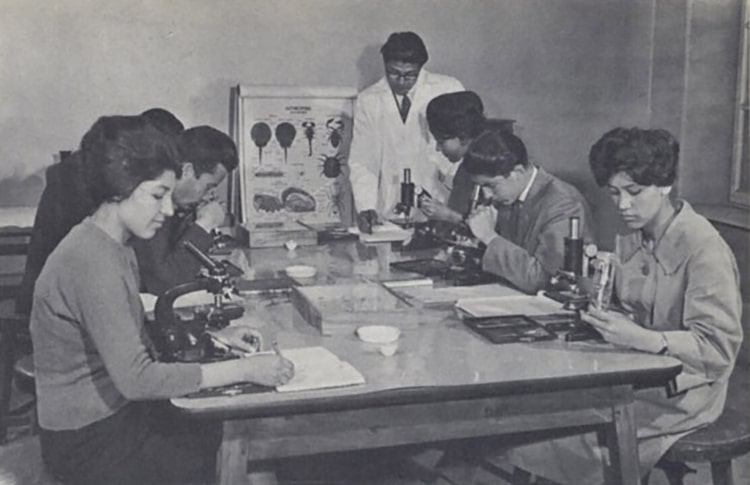Since the Taliban captured Kabul on August 15, 2021, life has been very different for Afghan women. International concern for their safety and rights skyrocketed as it became clear that the new regime’s promises to be more moderate in their dictates was illusory. Rules on female dress came quickly, followed by gender-segregated education. Now, the Taliban has officially banned women from the country’s universities—effective immediately. Among a range of global responses, a consortium of 20 top British and Irish universities have pledged to offer Afghan women free courses on the online platform FutureLearn as long as the ban is in place.
The ban on Afghan women’s higher education was imposed in late December 2022, just as some female students were preparing for the last of their finals. Upon hearing about the ban, a 21-year-old female student told CNN, “I did not stop and kept studying for the exam. I went to the university in the morning anyway.” When she got there, she says, “It was a terrible scene…Most of the girls, including myself, were crying and asking them to let us go in … If you lose all your rights and you can’t do anything about it, how would you feel?” Girls above sixth grade in Afghanistan similarly lost their right to an education this past March. Currently, only the youngest female students are able to go to school.
The Taliban justifies their ban on university for women through their own twisted readings of Islamic law and Afghan culture. In fact, Afghan women are in no way a new feature on the university scene. In 1957, women were allowed to enter universities across the country, a time when relatively few American women went to college and many top schools in the U.S. were still all male. Until around 1980, women studied alongside men. Additionally, an entire generation of young women—those in today’s university classrooms—were raised after the end of the Taliban’s first rule.
Embed from Getty Images
The ban—and the Taliban’s opposition to women’s education—has received pushback. Prominent cricket players in the country have expressed their opposition. Male students at Nangarhar Medical University walked out in solidarity with their female peers, refusing to sit thier exams. Female university students themselves have protested at the gates which are locked against them, with some arrests reported. At least 60 Afghan academics have resigned their posts in protest. “These bans are against Islamic values and against national interest. It impacts everyone, not just the women. I could not be part of such a system,” Abdul Raqib Ekleel, an urban development lecturer at Kabul Polytechnic University, told The Guardian.
The UN, as well as Foreign Ministers from Australia, Canada, France, Germany, Italy, Japan, the Netherlands, Norway, Spain, Switzerland, the UK, the U.S., and the High Representative of the EU have also strongly condemned the new ban. Other Islamic countries have weighed in, with the UAE and Saudi Arabia—the latter of which restricted women’s driving, travel, and employment until 2019—calling on the Taliban to reverse the decree. The Turkish Foreign Minister Mevlut Cavusoglu said that the new decree was “neither Islamic nor humane.”
While the Taliban remain in power, a consortium of universities is stepping up to do their part. Over 20 of the UK and Ireland’s top universities will offer over 1,200 free online courses to Afghan women. Among the schools participating are top universities such as Trinity College Dublin, University of Nottingham, York University, University of Leeds, London’s Goldsmiths, and University College London. These universities are FutureLearn partners, and this platform will allow their courses to reach women in need.
Jo Johnson, chairman of FutureLearn, told The National News, “For girls and women who can access the internet and afford the time, this could be a lifeline. While this is of course no silver bullet—poor connectivity, poverty and language barriers mean many women may not be able to access the material—it can nonetheless play a valuable part in enabling women in Afghanistan to assert their inalienable human right to education.” Lord Mark Malloch-Brown, president of the Open Society Foundation, said, “The Taliban think the world has forgotten [Afghan women]; we mustn’t…It is a welcome sign that our commitment to fighting for human rights for all Afghans remains strong.”
Through FutureLearn, many top British and Irish universities will offer 1,200 free online courses to Afghan women.

Kabul University in the 1950s. (Photo:
Wikimedia Commons,
Public domain)
The move comes after the Taliban banned women from universities in December 2022.

Photo: ANDREUS/Depositphotos
h/t: [The National News]
Related Articles:
Young Afghan Artist Creates Emotional Painting of Her Country’s Fall to the Taliban
100 Afghan Musicians, Music Students, and Teachers Successfully Escaped the Taliban
Heartbreaking Art From Afghanistan’s First Female Street Artist Shamsia Hassani
